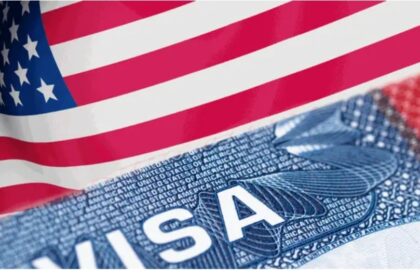Yusuf Abubakar
As the Nigerian economy continues to gather momentum, after recording its fastest growth since 2015 in the fourth quarter of 2018, analysts have highlighted the role the direct financial intervention the Central Bank of Nigeria (CBN) made in almost all the 36 states played in stimulating the economy.
According to analysts, the bailout funds that was given to the states by the CBN Governor, Mr. Godwin Emefiele, when President Muhammadu Buhari assumed office in 2015, was a master stroke for his administration.
This, was because, when the present administration was inaugurated, there was utter confusion everywhere because of huge amount of unpaid salaries in states, as well as unpaid pension obligations.
But the bailout fund went a long way in stabilising the economy. Emefiele’s leadership was instrumental to the successful initiative.
In line with the federal government’s resolve to reflate economic activities in the country, the Central Bank of Nigeria (CBN) had in 2015, few months after President Buhari assumed office, commenced the disbursement of its special intervention fund totalling N338 billion to 27 states in the country.
This bailout fund was the first tranche and was followed subsequently with other interventions, but with more stringent condition as the government discovered that some of the states diverted the funds.
The intervention then supported most of the ailing states in the payment of states and other expenditures they were faced with then.
The loans were repayable at an interest rate of nine percent over a 20-year period.
As part of the federal government’s resolve to end the lingering crisis of unpaid workers’ salaries in the country, especially in several states of the federation, President Muhammadu Buhari had approved a comprehensive relief package designed to salvage the situation.
Part of the relief package was the CBN’s special intervention fund to be offered to states, which would be in the form of soft loans available to states to access solely for the purpose of paying the backlog of salaries.
The approval of the special intervention fund was sequel to the decision by the National Economic Council (NEC) at its meeting of June 29, 2015, that had requested that the CBN, in collaboration with other stakeholders, should appraise and consider ways of liquidating outstanding workers’ salaries owed by state and local governments.
The conditions for accessing the facility included resolutions of the respective state executive councils (SECs) authorising the borrowings and state Houses of Assembly consenting to the loans, as well as issuance of Irrevocable Standing Payment Orders (ISPOs) to ensure timely repayment at source from the states’ Federation Account allocations.
Then, the breakdown of funds from the first tranche showed that Kwara State got a total of N4.320 billion from the special intervention fund, Osun got N34.988 billion, while Zamfara was given N10.020 billion.
Abia State also got N14.152 billion, while Adamawa State was said to have received N2.378 billion; Bauchi – N8.60 billion; Bayelsa – N1.285 billion; Benue – N28.013 billion; Borno – N7.680 billion; and Cross River – N7.856 billion.
In addition, Delta got N10.036 billion; Ebonyi – N4.063 billion; Edo – N3.167 billion; Ekiti – N9.604 billion; Enugu – 4.207 billion; Gombe – N16.459 billion; Imo – N26.806 billion; Katsina – N3.304 billion; Kebbi – N0.690 billion and Kogi – N50.842 billion.
Nasarawa also got N8.317 billion, while Niger received a total of N4.306 billion; Ogun – N20.00 billion; Ondo – N14.686 billion; Oyo – N26.606 billion; Plateau – N5.357 billion and Sokoto got N10.093 billion.



